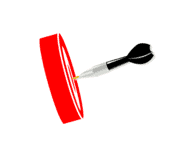What is the Zeigarnik Effect and what does it have to do with music?
Here, we look at how a phenomenon noticed by a psychologist in 1927 can be tapped into today in order to help us be better musicians.
Guest post by Caleb J. Murphy of Soundfly’s Flypaper
Sometimes, a simple concept has a fancy name. And the Zeigarnik Effect is an example of that. When this idea also becomes practical, it can help you be a way more productive musician. So let me tell you about it…
What Is the Zeigarnik Effect?
Back in 1927, a psychologist and psychiatrist named Bluma Zeigarnik noticed something interesting with waiters and waitresses. Specifically, with their memory.
They remembered customers’ orders that hadn’t yet been fulfilled (basically, they were good at their jobs). But then after those customers got their orders, the wait staff completely forgot what those customers ordered.
Zeigarnik’s takeaway was that people remember tasks they’ve started but haven’t yet completed better than tasks they’ve already completed.
Okay, very interesting. Now how might we apply that effect to being a musician? (“Zeigarnik” is hard on the eyes, I get it. Let’s call it the Z Effect.)
Using the Z Effect to Motivate Yourself
Don’t you hate the feeling of having uncompleted tasks? That’s why looking at our endless to-do lists are so stressful, right? But that stress is also a motivator, in a way that is much easier to comprehend and tackle than an empty slate.
So if you want to get more done, start more often.
I recently started recording a new album. Before that, I felt intimidated at just the thought. But once I started, the momentum carried me forward.
I know saying “just start” is not super helpful and most of us need more than that. So, here are three practical tips to help you take advantage of the Z Effect.
1. Set tiny goals for yourself.
Goals freak a lot of people out. But that’s because their goals are too lofty. The key is to create tiny goals — goals that are smaller than you think they should be.
Go ahead, set a goal. Now cut it in half. Heck, cut it in half again.
Instead of saying, “I’m going to record an album this year,” say, “I’m going to record the chorus of one song this month.” Keep the “Record an album” goal in mind (hence, using the Z effect), but chop it up into little bites.
2. Set a schedule for yourself (and stick to it).
Throw away your to-do list and replace it with a calendar. You can thank me once you realize how amazing it is.
The Z Effect is great, but sometimes you can have too many unfinished tasks. So instead of leaving those tasks on your to-do list, find a time to do them, then create an event in your calendar for that task. This also acts as a reminder from your past self to do the thing you wanted to do.
3. Track your goals.

As you complete your goals, add them to a list of completed goals. This might be the most encouraging thing I’ve done for my music career, especially combined with setting small goals.
I now have a list of dozens of goals I’ve complete. So whenever I’m feeling discouraged, I just look at my list of “Accomplishments.” And right away I realize, “Dang, I’m actually making progress!”
When it comes to the Zeigarnik Effect, the main takeaway is to just start. Unfinished projects will stick in your brain, automatically motivating you to finish them. Take the first step: sit your butt down wherever you record music. Then do the next thing from there.
Caleb J. Murphy is a songwriter and producer based in Austin, TX., and the founder of Musician With A Day Job, a blog that helps part-time musicians succeed. He’s been self-releasing music since 2009 in various bedrooms, basements, garages, and closets.